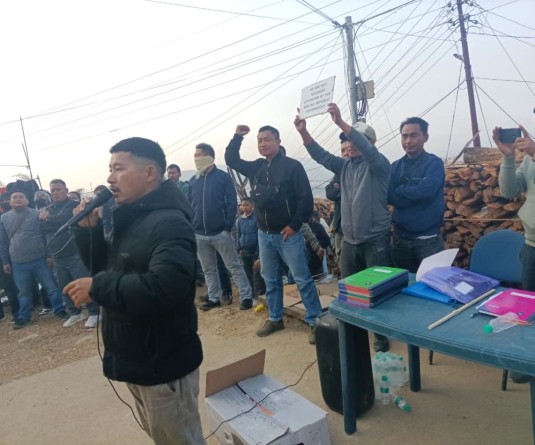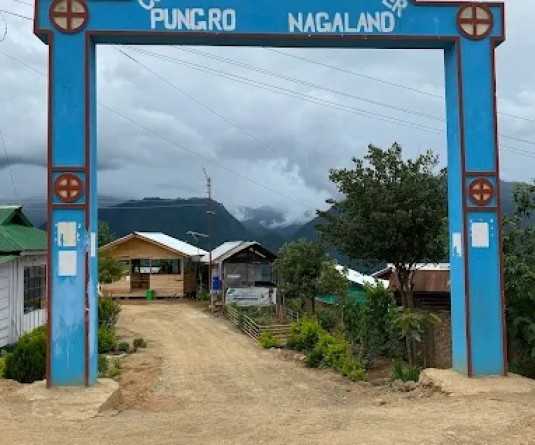Forensic Science Laboratory at Kachari Gaon in Dimapur. (File photo)

Cautions of delays and justice risks due to infrastructural deficiencies
Dimapur, September 10 (MExN): The Nagaland Forensic Science Association (NFSA) has drawn attention of the concerned authorities on the growing need for forensic development in the state as well as urgent need for filing up required workforce.
In a press release, it highlighted that Nagaland set up its first Forensic Science Laboratory (FSL) in the year 1982, with fingerprint and photography divisions, which was later shifted to Kachari Gaon, Dimapur in 2018.
During inauguration of new infrastructure and addition of five new departments on September 27, 2018, the Deputy Chief Minister Y Patton had stated that the new addition would lead to creation of nine scientific posts via Nagaland Public Service Commission (NPSC) exam, the association said.
However till date, there has been no advertisement posted for the said statement, it added.
The NFSA further pointed out that for some years the NFSA comprising of more than 30 registered members has had constantly writing and meeting with the Home Department and Nagaland Police Headquarter over the issue.
However, such initiatives has been largely ineffective, as the creation of the nine scientific posts is still under process and remains pending, even in its final stages, it said.
As per the association, it is yet to be approved by the Chief Minister office.
Accordingly, the NFSA expressed with concern that delay in recruitment has led to overage of potential scholars, some of whom have done PhD, had worked under other FSLs, and were NET and FACT (Forensic Aptitude and Caliber Test) qualified.
The association further noted that as per its analysis, there are only police personnel who visit the crime scene and collect evidence to be send to nearby FSLs so far.
The State FSL in Dimapur has no Scientific Officers, Scientific Assistant, or Forensic Lab Technician, it claimed, pointing out that a functioning FSL should be able to do the following; DNA analysis, Fingerprint Analysis, Ballistic analysis, Toxicological analysis, blood splatter analysis, interpret trace evidences and also Digital forensic analysis, the fastest growing area.
But the State FSL is yet to be an analysing institution, it added.
Hence, it cautioned that the delays in forensic reports and dangers of degradation or contamination of evidences while transporting is a sensitive yet crucial issue as it can lead to injustice and hurt the sentiments of the victim’s families who have put their hope in the justice system.
In addition, the NFSA highlighted that as per the new criminal laws implemented since July 1, the provision of forensic experts has been made mandatory for the collection of forensic evidence from the scene of crime.
The new criminal law demands more forensic science, including the use of technology and forensics in the collection, preservation and analysis of evidence, it said, adding that the Section 176 of the Bharatiya Nagarik Suraksha Sanhita (BNSS) requires that a forensic expert visit the crime scene to collect evidences in cases where the offense is punishable by at least seven years or more in prison.
Amidst, the extra need for forensic experts and the mandatory provisions under the new criminal law, the forensic laboratories might have to deal with whopping 8000% more cases every year, it maintained.
With the overall increase in workload, the samples gathered in crime cases from Nagaland and sent to Guwahati Forensic Laboratories or any nearby FSLS for analysis would face delays and given less priority leading to delay in justice, it added.
While welcoming the new changes, thus, the NFSA expressed serious concern that the FSL status in Nagaland is yet to see any change or progress.
To this end, it earnestly requested that the State Government take into account the need for upgrading forensic in Nagaland, conduct investigation by implementing the new criminal laws enforced by the center and initiate the speedy recruitment of forensic personnel as promised.






